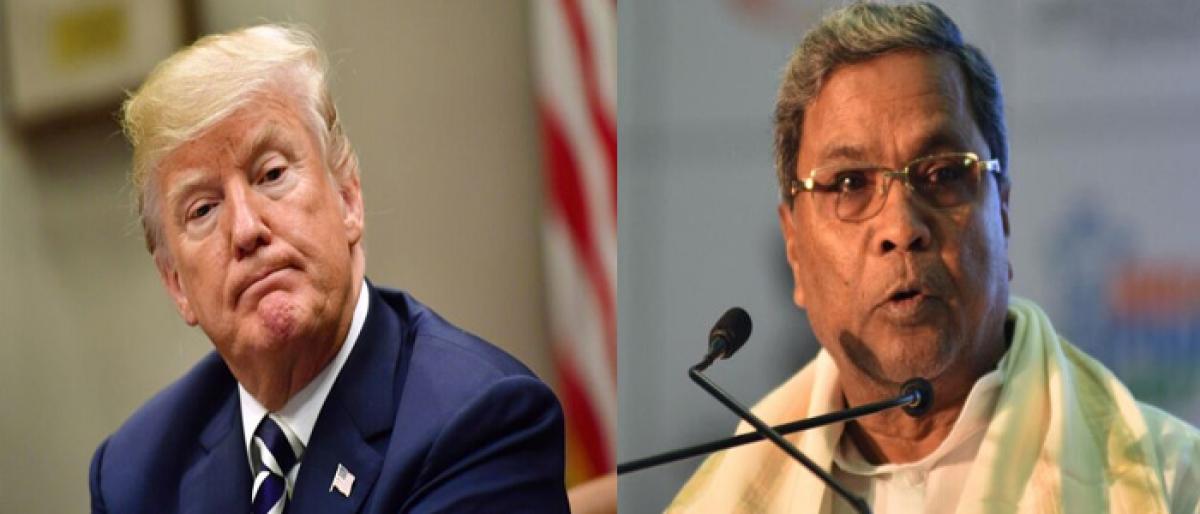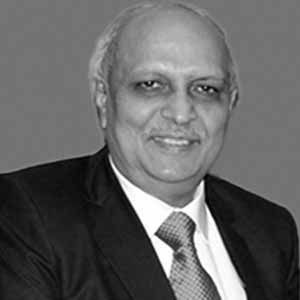Live
- Direct flights from Rajahmundry to major cities soon
- Search intensified for Gowtham Reddy as HC dismisses his bail plea
- Santosh Trophy final round to begin in Hyderabad tomorrow
- BGT: Rohit must return to opening for Brisbane Test, says Ponting
- Swimming sensation Havya steals the show
- NDTL gets WADA nod to manage Athlete Biological Passport
- BWF World Tour Finals: Treesa-Gayatri wins 2nd match to keep semis hopes alive
- Youngest ever to conquer chess world
- Jamie Lever to star in Lakshmi R Iyer’s ‘2050’: It challenged me emotionally
- Prateeksha Srivastava says she seldom meets fellow music composers Rusha, Blizza, in person
Just In

US president Donald Trump has finally started acting on what he has been threatening for long. He slapped import tariff on steel and aluminium on national security considerations. He has thus set in motion a debate on the future of international trade which increased enormously consequent upon the establishment of the World Trade Organisation in 1995.
US president Donald Trump has finally started acting on what he has been threatening for long. He slapped import tariff on steel and aluminium on national security considerations. He has thus set in motion a debate on the future of international trade which increased enormously consequent upon the establishment of the World Trade Organisation in 1995.
It was at the turn of the 19th century David Ricardo, one of the most influential Classical Economists of his times from Britain who came up with a theory in justification of trade. Based on the two principles of competitive advantage and opportunity cost, he has established that trade is a win-win situation for both the countries that trade even in case one of the countries had higher cost of production for both the products.
International trade started picking up only after the Second World War with the establishment of the General Agreement for Tariffs and Trade (GATT), a broad framework to foster growth of International trade. It was based on the two concepts of reciprocity and nondiscrimination which still continue to be corner stones of International trade. This framework of trade was institutionalised in 1995 and a permanent body known as the World Trade Organisation was formed. The concept of trade was expanded to cover in addition to trade in goods, trade in services as well, while making provision for protection of intellectual property rights.
Right from the beginning, the trade negotiations leading to establishment of WTO took care of the interests of the developed countries, specifically ensuring the protection of intellectual property rights and also bringing in services sector in addition to manufacturing within the ambit of international trade. The Doha Round which was supposed to be beneficial to developing countries by addressing the issue of agricultural subsidies both in the European Union and the USA ended up as a failure.
Though the overall framework of the WTO is favourable to the developed countries, China has demonstrated even within that framework the developing countries can benefit enormously if they are able to organise their governance properly. China is a late entrant to WTO in the year 2001 and made a number of concessions to other members to gain admission.
But once it became a member it took full advantage of the multilateral trading system and was able to gain access to the markets of developed countries. Within a decade Chinese GDP increased four times and its exports five times. And it is this which is triggering the knee-jerk reaction of people like President Trump.
In any trade there are going to be gainers as well as losers. USA is an enormous beneficiary of the growth in world trade consequent on the formation of WTO in terms of access their banking and insurance companies gained all over the world. The protection of the intellectual property rights has led to huge benefits to this country in terms of royalties.
Failure of Doha Round allowed them to continue with their enormous subsidies to the agricultural sector and to that extent the agriculture sector in the USA is protected. Only area of concern for them is the manufacturing sector which is adversely affected due to competition from countries like China.
Leaders like Trump with their myopic view of issues can with one stroke undo a lot of benefit that has accrued to the world due to growth in international trade based on a rule-based mechanism for settlement of disputes.
In fact, the framework of WTO and the Uruguay Round of discussions were highly skewed in favour of developed countries. In spite of such a framework, provision for access to markets and access to capital has ensured that the manufacturing takes place in areas where there is competitive advantage and thus positively impacted some of the developing countries.
It is the responsibility of the country concerned to cushion the sectors adversely affected by devising mechanisms of sharing of additional wealth generated facilitated by free trade. Instead of taking such a step to support the adversely affected sectors Trump took the convenient option of imposing additional tariffs setting in motion possible retaliatory steps by other countries nullifying the advantages of a growing international trade.
One can see similarities between leaders like Trump and Siddaramaiah who feel that some other countries or states are being cross-subsidised by their country or by their state whereas in an inter-dependent economy some gain some lose but, overall, all are beneficiaries.

© 2024 Hyderabad Media House Limited/The Hans India. All rights reserved. Powered by hocalwire.com







